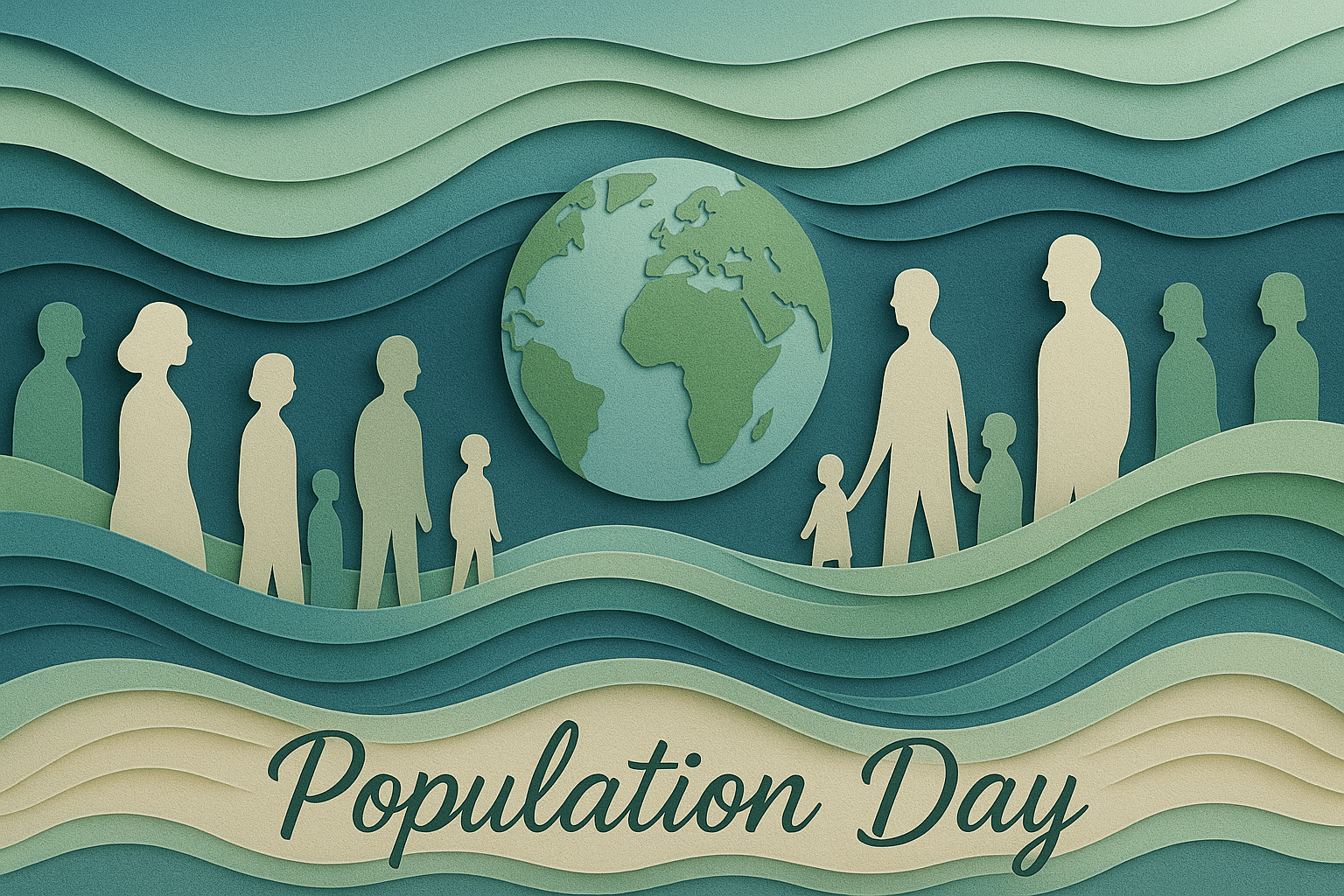What is World Population Day?
World Population Day is observed annually on July 11 to raise awareness about global population issues. Established by the United Nations Development Programme in 1989, the day was inspired by the public interest in Five Billion Day on July 11, 1987, when the world’s population reached five billion people. The observance aims to highlight the urgency and importance of population matters, including their relations to the environment and development.
The day focuses on various population-related issues such as the importance of family planning, gender equality, poverty, maternal health, and human rights. By bringing attention to these topics, World Population Day encourages governments, organizations, and individuals to take action towards sustainable development and improved quality of life for all.
History and Origin
World Population Day was established in 1989 by the Governing Council of the United Nations Development Programme. The inspiration came from the public interest generated by Five Billion Day on July 11, 1987, marking the approximate date when the world’s population reached five billion. Recognizing the significance of population issues, the UNDP initiated this observance to raise awareness and promote action on population-related challenges.
In December 1990, the United Nations General Assembly decided to continue observing World Population Day to enhance awareness of population issues, including their relations to the environment and development. Since then, the day has been celebrated annually on July 11, focusing on various themes related to population and development.
Who participates in World Population Day?
- United Nations agencies: coordinate global observances and promote awareness campaigns
- Governments: organize national events and initiatives addressing population issues
- Non-governmental organizations (NGOs): conduct programs and activities related to family planning, health, and education
- Educational institutions: host seminars, workshops, and discussions on population topics
- General public: engage in awareness activities and share information on social media
Slogans and Themes
World Population Day emphasizes themes such as reproductive health, gender equality, and sustainable development. Common slogans include “Family Planning is a Human Right,” “Investing in Youth,” and “Rights and Choices are the Answer.” Each year, a specific theme is chosen to focus on particular aspects of population issues, encouraging targeted actions and discussions.
Colors, Symbols, and Patterns
Colors
- Blue: represents peace and stability
- Green: symbolizes growth and sustainability
- Orange: denotes energy and enthusiasm
Symbols
- Globe: signifies the global nature of population issues
- People icons: represent the diversity and unity of the human population
- Family figures: highlight the importance of family planning and reproductive health
Patterns
- Population graphs: illustrate demographic trends and data
- Infographics: provide visual representations of population statistics
- Cultural motifs: reflect the diversity of global communities
Most used hashtags
- #WorldPopulationDay
- #PopulationMatters
- #FamilyPlanning
- #ReproductiveHealth
- #SustainableDevelopment
How do you celebrate World Population Day?
- Attend events: participate in seminars, workshops, and discussions on population issues
- Educate others: share information and resources about population challenges and solutions
- Support organizations: contribute to NGOs working on reproductive health and family planning
- Advocate for policies: engage with policymakers to promote sustainable development initiatives
- Raise awareness: use social media platforms to spread messages and facts about population matters
Why is World Population Day important?
World Population Day is important because it brings attention to the pressing issues related to global population growth and its impact on development, environment, and human well-being. By focusing on topics such as family planning, gender equality, and reproductive health, the observance encourages actions that can lead to improved quality of life and sustainable futures for communities worldwide.
The day also serves as a reminder of the interconnectedness of population dynamics and various aspects of society, including education, healthcare, and economic development. Through awareness and advocacy, World Population Day promotes informed decision-making and collective efforts to address population challenges effectively.
Features
July 11: Population Day
Why do you keep falling for the same type?
Read the article Lovemaps: the hidden blueprint of our love.

